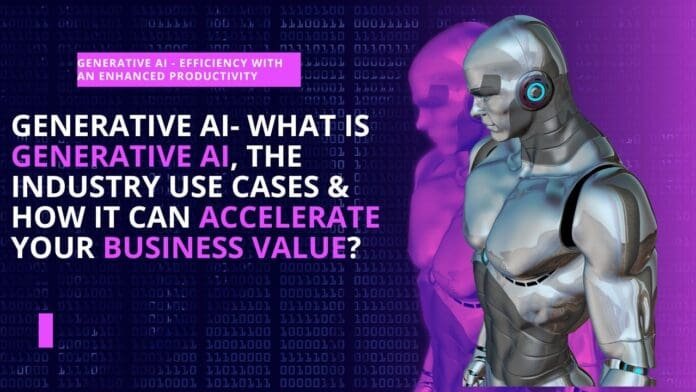There is a world outside of generative artificial intelligence. Other technological advances have enabled the tremendous progress in generative AI we have witnessed in the last decade. For instance, cloud computing makes artificial intelligence more accessible to anyone. By facilitating actual time data analysis and artificial intelligence processing, 5G enhances the prospects of generative AI. Additionally, generative AI models may extract a wealth of data from the Internet of Things.
Put another way, a wide range of different technologies have impacted and helped generative AI. However, what about the other side? What is the potential for generative AI to speed up other technologies? These are some speculations.
The Metaverse and Generative AI
Whether you believe in the metaverse or not, the idea of realistic virtual environments where we may work, play games, interact with others, shop, and study is fascinating. Generative AI can improve metaverse environments by facilitating instantaneous, autonomous content production. Consider engaging in a virtual reality game where you can create custom tasks and characters made exclusively for you in real-time. Gamers and other users of the metaverse can have more personalized, deep adventures with the help of generative AI tools like this one.
In the future, many companies will have a metaverse presence, similar to how most do today with websites and social media accounts. It may be an immersive experience for the brand, a virtual campus that employees can visit, or a virtual shop. Any company looking to establish a metaverse profile may find that generative AI is a useful tool. Given that generative AI solutions can write computer code and produce content, corporations may theoretically create individual immersive 3D metaverse places by simply instructing generative AI tools to build whatever they desire.
Ahead of AI-Powered Robots
Robots can acquire knowledge and adjust to various new tasks flexibly thanks to generative AI, which will also impact robotics. It will increase the number of self-driving robots produced and the variety of activities they can perform. Future robots, for example, will be able to perform amazing athletic achievements, carry on genuine conversations, and make sophisticated decisions. Put differently, generative AI will aid in the development of intelligent robots.
It will increase the variety of jobs that AI automation affects. At this point, generative AI has allowed humans to automate various innovative and intellectual activities, such as certain activities performed by educators, musicians, designers, marketers, and others. At least, physical professions like building, machine work, sanitation, and others are not significantly impacted by the current phase of generative AI change. But if you combine robotics with generative AI, that might alter. Many industries, including manufacturing floors, retail establishments, lodging facilities, and construction sites, may employ robots with artificial intelligence capabilities.
Bringing Together Generative AI And Materials Science
The creation and discovery of new materials are already starting to benefit from the application of generative AI. How? Integrating machine learning to project conclusions, simulating different attributes, and evaluating large datasets. In essence, generative AI can lessen the amount of trial and error that goes into creating and discovering new materials.
It will facilitate and accelerate the search for new materials with unique characteristics. It will facilitate the quick prototyping of novel materials and even make modifying existing materials for use in particular sectors and applications easier.
Advancing Gene Technology And Synthetic Biology
Generative AI holds great potential for developing synthetic biology and genetic engineering, much like it does for materials science. It can catalyze the creation of new biological systems and the improvement of existing ones. Generative AI models can forecast the possible results of genetic modifications by utilizing extensive datasets obtained from biological studies and DNA sequences. It can lead to a substantial acceleration of development and creativity.
Our world might gain from this in several ways. One possible outcome is the emergence of personalized medicine, in which medical interventions are customized to an individual’s biological composition. Alternatively, it might facilitate the creation of GMOs, or genetically engineered organisms, to improve crop productivity, nutritional content, and resistance to bugs.
Connecting The Mind To ChatGPT? Brain-Computer Interfaces: An Introduction
It might appear like a science-fiction story, but brain-computer interfaces enable an individual’s brain to interact directly with a computer, for example, through a medical device or chip. However, businesses like Neuralink are currently creating these kinds of interfaces.
The possibilities are mind-blowing when brain-computer interfaces and generative AI merge. For instance, you could quickly access the web from your head by simply thinking up an inquiry, and the artificial intelligence would then provide you with the response. The ultimate fusion of humans and machines is truly amazing.
The main lesson is that we are at a turning point in history where several innovative technologies are combining. Machine intelligence will keep expanding rapidly in the future, and we may anticipate that this will happen to other cutting-edge technology.





